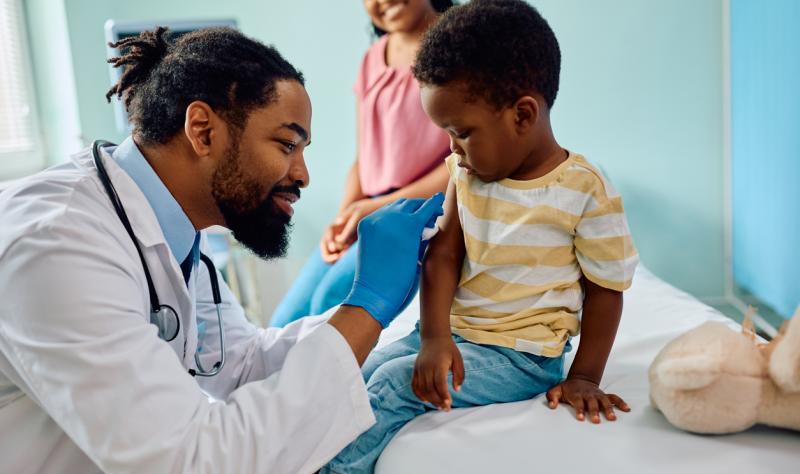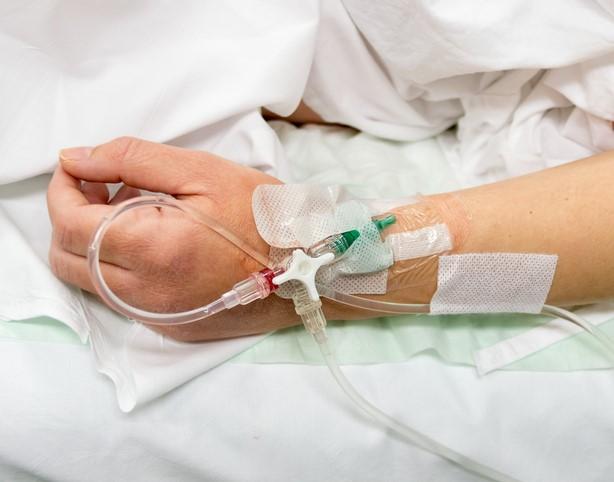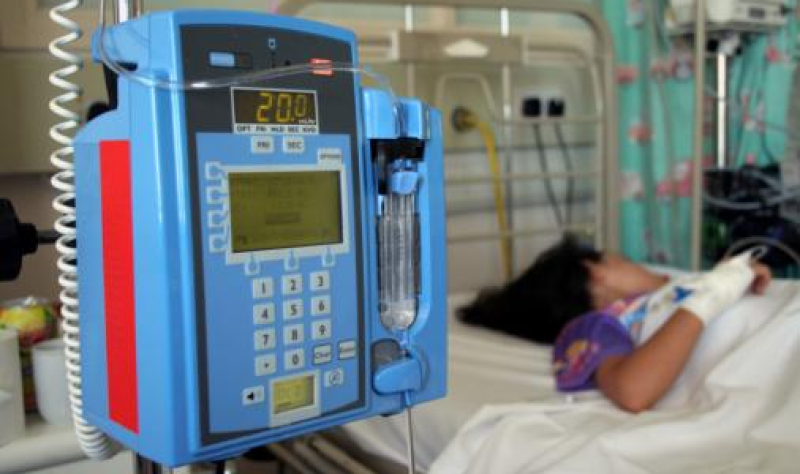AAP evidence-backed immunization schedule reflects break from CDC advisers
The AAP recommends that all kids ages 6 to 23 months old be vaccinated against COVID, given that they are at highest risk for severe disease.


Ahead of the new respiratory virus season, the American Academy of Pediatrics (AAP) today published an update to its recommended childhood vaccine schedule, which breaks from recent recommendations from the Centers for Disease Control and Prevention (CDC) Advisory Committee on Immunization Practices, which was overhauled earlier this year to include people known to spread vaccine misinformation and others without expertise in vaccines.
In a statement, the AAP noted that for decades it has been issuing evidence-based guidance to support pediatricians who care for children and their families, and it said today’s recommendations continue that tradition.
The schedule covers routine recommendations for 18 diseases, including respiratory syncytial virus (RSV), influenza, and COVID-19. They also include other changes, such the pentavalent (five-strain) meningococcal vaccine, starting age of the human papillomavirus (HPV) vaccine, and the removal of a hepatitis vaccine that is no longer available.
Susan Kressley, MD, the AAP’s president, said the group will continue providing immunization recommendations that are rooted in science and are in the best interest of infants, children, and adolescents. “Pediatricians know how important routine childhood immunizations are in keeping children, families, and their communities healthy and thriving.”
Action follows watered down HHS-led recommendations
Amid efforts by Department of Health and Human Services (HHS) Secretary Robert F. Kennedy Jr. to discredit childhood vaccines and add barriers to their use, medical experts and parent groups have raised worries about insurance coverage for childhood vaccines, since companies typically tie their coverage policies to official recommendations.
In May, Kennedy unilaterally announced sweeping changes that removed the COVID vaccine recommendation for healthy children and pregnant women. A few days later, however, the CDC updated its immunization schedule to only partly reflect the new position, saying that children ages 6 months to 17 years may receive the COVID vaccine based on parent preference and the clinical judgment of healthcare providers.
Pediatricians know how important routine childhood immunizations are in keeping children, families, and their communities healthy and thriving.
Updated COVID vaccines for the 2025-26 season are expected to be approved soon by the Food and Drug Administration (FDA). But last week reports surfaced that the agency might not renew the emergency use authorization (EUA) for the Pfizer vaccine for children ages 6 months to 4 years old, which would limit the supply of vaccines for the youngest kids.
“The AAP urges every insurer to cover all the vaccines that are included in this immunization schedule,” Kressley said. “AAP is committed to working with our partners at the local, state and federal levels to make sure every child, in every community has access to vaccines.”
The AAP’s announcement today is one of multiple efforts to fill the recommendation gap. Today, the Vaccine Integrity Project (VIP), a group of leading health experts that defend vaccination and make recommendations on how nongovernmental agencies can help make sure that vaccine recommendations remain science-based, held a live stream event to review safety and effectiveness evidence for RSV and COVID immunizations in pregnant, pediatric, and immunocompromised people. The VIP was assembled by the University of Minnesota’s Centers for Infectious Disease Research and Policy (CIDRAP), which published CIDRAP News.
In addition, some states have signaled that they may weigh in with recommendations that depart from ACIP’s most recent recommended schedule.
COVID vaccine for all younger than 2, risk-based for others
In its recommendation for the COVID vaccine, the AAP said data show that children ages 6 to 23 months old are at highest risk for severe disease, and it recommends vaccination for all children in that age-group to protect against serious illness. The group added that the youngest children should be prioritized for vaccination unless they have a known allergy to the vaccine or its ingredients.
For kids ages 2 through 18 years old, the AAP recommends a single dose of age-appropriate vaccine for those in the following risk groups: those at risk for severe disease, residents of long-term care or congregate settings, kids who have never been vaccinated against COVID, and those who have household contacts who are at high risk for severe COVID. “The AAP also recommends the vaccine be available for children ages 2-18 who do not fall into these risk groups, but whose parent or guardian desires them to have the protection of the vaccine,” the group added.
The AAP also recommends the [COVID] vaccine be available for children ages 2-18 who do not fall into these risk groups, but whose parent or guardian desires them.
Sean O’Leary, MD, who chairs the AAP’s infectious diseases committee, said that, after an extensive review of the literature, it’s clear that COVID vaccines are safe for all populations. He added that the group moved to a risk-based recommendation for healthy older children because the hospitalization rate for young children and those with underlying health conditions remains high, similar to that for other vaccine-preventable diseases.
Flu, RSV immunization advice
The AAP said it recommends that all children ages 6 months and older receive the annual flu vaccine, unless there is a medical reason for not using it, as a strategy to protect children and the community, especially when other respiratory viruses are circulating.
For RSV, the AAP recommends monoclonal antibody immunization (nirsevimab or clesrovimab) for infants younger than 8 months old whose mothers did not receive the RSV vaccine during pregnancy or whose RSV vaccination status is unknown or if the infant was born less than 14 days after the mother received the RSV vaccine.
The AAP also recommends immunization for babies ages 8 through 19 months old who are at high risk of severe disease and those entering their second RSV season. The group defines high risk as children with chronic lung disease, those with compromised immune systems, and other groups.



